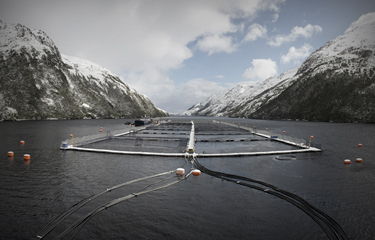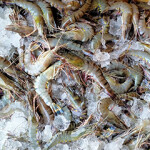Nova Austral closes Skyring 3, to take USD 4.1 million hit

Punta Arenas, Chile-based salmon farmer Nova Austral announced it decided in November to close its Skyring 3 site, which will mean a fourth-quarter financial impact of USD 4.1 million (EUR 3.6 million) and approximately 4,000 metric tons (MT) less in harvested volumes in 2023.
Nova Austral attributed the decision to the site having “experienced extreme weather conditions that affected the ability to operate normally, and [which] at the same time favored massive sea lion attacks.”
The company also acknowledged “temporary working capital challenges,” for which it is currently engaged in discussions with a group of larger bondholders and other stakeholders on possible solutions, it said in its Q3 20021 financial presentation – without offering further information. Nova Austral is owned by the equity funds Altor Fund III and Bain Capital.
In the third quarter, the company posted net losses of USD 12.4 million (EUR 11 million), havling its losses from the USD 24.8 million (EUR 21.9 million) loss it recorded in the same quarter last year. The company's revenues dropped 59 percent to USD 16.2 million (EUR 14.3 million), versus the USD 39.7 million (EUR 35.1 million) seen in Q3 2020, mainly due to lower volumes sold, which were down 70 percent, with the company selling 5,200 MT whole-fish equivalent (WFE) less volume than in the same period in 2020. But Nova Austral said the cost of goods sold decreased 67 percent to USD 12.5 million (EUR 11 million), which it attributed to better ex-cage costs.
Nova Austral harvested 9,500 MT of salmon in Q3 2021, a 48 percent decrease from the 18,400 MT it harvested in the Q2 mainly due to stocking restrictions in sea-water sites during 2019 and 2020.
Because of the lower harvests, Nova Austral sold less product in all of major markets during the third quarter. It sold USD 11 million (EUR 9.7 million) worth of salmon in the United States, versus USD 14.3 million (EUR 12.6 million) in the same period a year ago; USD 2.2 million (EUR 1.9 million) in Europe, versus USD 8 million (EUR 7.1 million) one year prior; and just USD 700,000 (EUR 600,000) worth of salmon in Russia, compared to USD 13.1 million (EUR 11.6 million) in Q3 2020.
The U.S. and Europe continued to be Nova Austral’s primary markets, contributing to 89 percent of net sales, the company said. Nova Austral said its "critical competitive advantage" of supplying antibiotic-free salmon remains in place. During 2021, 99 percent of the biomass harvested was Aquaculture Stewardship Council-certified and 100 percent had Best Aquaculture Practices certification.
The company provided guidance that it is planning to stock between 6.5 million and 7.5 million smolts in 2022 – all from its own hatchery – and to harvest 19,000 MT to 20,000 MT WFE.
No further cases of ISA have been reported in the Skyring area since the outbreak in Navarro 3 last year, and Navarro 3 will be stocked again Q1 2023.
Nova Austral has been in regulatory hot water since 2019 over the false reporting of mortality figures, over which it has faced criminal charges. Additionally, in June 2020, Chile’s Council for the Defense of the State (CDE) filed a criminal lawsuit against former company executives, forcing an investigation into their responsibility for fraud. And in January this year, a Chilean court of appeals confirmed a fine of CLP 153 million (USD 217,000, EUR 177,000) against the salmon farmer and extended the sanctions to include the suspension of one production cycle at the company’s Aracena 3 center.
In September, Chile’s environment regulation agency fined Nova Austral CLP 1.23 billion (USD 1.56 million, EUR 1.32 million) for inadequate mortality and solid-waste management at its Aracena 19 grow-out center, located inside the Alberto de Agostini National Park in Punta Arenas. It is the highest fine ever levied for environmental rule-breaking in the Magallanes region.
At the time, Nova Austral said the allegations were “completely misaligned” with the actions and business ethics of Nova Austral and its shareholders, adding that its board of directors had commissioned an internal and independent investigation to detect and correct the errors that led to a complete overhaul of its senior management.
Photo courtesy of Nova Austral






Share